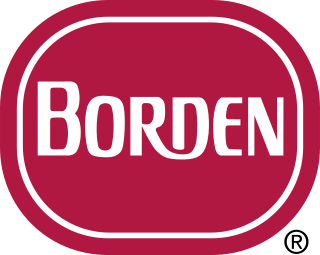
Orange juice is a liquid extract of the orange tree fruit, produced by squeezing or reaming oranges. It comes in several different varieties, including blood orange, navel oranges, valencia orange, clementine, and tangerine. As well as variations in oranges used, some varieties include differing amounts of juice vesicles, known as "pulp" in American English, and "(juicy) bits" in British English. These vesicles contain the juice of the orange and can be left in or removed during the manufacturing process. How juicy these vesicles are depend upon many factors, such as species, variety, and season. In American English, the beverage name is often abbreviated as "OJ".

Windex is an American brand of glass and hard-surface cleaners—originally in glass containers, later in plastic ones.

A carton is a box or container usually made of liquid packaging board, paperboard and sometimes of corrugated fiberboard. Many types of cartons are used in packaging. Sometimes a carton is also called a box.

Skippy is an American brand of peanut butter manufactured in the United States and China. First sold in 1932, Skippy is currently manufactured by Hormel Foods, which bought the brand from Unilever in 2013. It is the best-selling brand of peanut butter in China and second only to the J.M. Smucker Company's Jif brand worldwide.

Colman's is an English manufacturer of mustard and other sauces, formerly based and produced for 160 years at Carrow, in Norwich, Norfolk. Owned by Unilever since 1995, Colman's is one of the oldest existing food brands, famous for a limited range of products, almost all being varieties of mustard.

Snack Pack is a brand of pudding and gelatin snacks manufactured since 1968 by ConAgra Foods.

Sunlight is a brand of laundry soap, laundry detergent and dishwashing detergent manufactured and marketed around the world by Unilever, except in the United States and Canada, where it has been owned by Sun Products since 2010.

Reckitt Benckiser Group PLC, trading as Reckitt, is a British multinational consumer goods company headquartered in Slough, England. It is a producer of health, hygiene and nutrition products. The company was formed in March 1999 by the merger of British company Reckitt & Colman plc and Dutch company Benckiser N.V.
Reckitt & Colman Ltd v Borden Inc [1990] 1 All E.R. 873, – also known as the Jif Lemon case – is a leading decision of the House of Lords on the tort of passing off. The Court reaffirmed the three part test in order to establish a claim of passing off.

Naked Juice is an American brand that produces juices and smoothies. The company is based in Monrovia, California and is owned by PAI Partners. The first Naked Juice drink was produced in 1983 and sold in California under the name "Naked Juice", referring to the composition of no artificial flavors, added sugar, or preservatives. Distribution has since expanded, and Naked Juice products are distributed in the United States, as well as in Canada, the United Kingdom, the Netherlands and France, among others.

Borden, Inc., was an American producer of food and beverage products, consumer products, and industrial products. At one time, the company was the largest U.S. producer of dairy and pasta products. Its food division, Borden Foods, was based in Columbus, Ohio, and focused primarily on pasta and pasta sauces, bakery products, snacks, processed cheese, jams and jellies, and ice cream. It was best known for its Borden Ice Cream, Meadow Gold milk, Creamette pasta, and Borden Condensed Milk brands. Its consumer products and industrial segment marketed wallpaper, adhesives, plastics and resins. By 1993, sales of food products accounted for 67 percent of its revenue. It was also known for its Elmer's and Krazy Glue brands.
Parle Agro Private Limited is an Indian company that owns Frooti, Appy Fizz, LMN, Hippo, Bailley and Smoodh brands.

Gale's is a UK brand of honey, currently owned by Premier Foods. The former company had been established in 1919, remaining independent until it was acquired by Rowntree Mackintosh Confectionery in 1986.

ReaLemon is an American brand of lemon juice that debuted in 1934, and is manufactured and marketed as of 2016 by Mott's, part of Keurig Dr Pepper. ReaLime is a brand of lime juice that debuted in 1944, is produced in the same manner as ReaLemon, and is also produced and marketed by Mott's.
Conimex is a brand of Asian food, which offers products to prepare Indonesian dishes packed in yellow labeled packages.
Ecologic Brands Inc. is a United States company that specializes in creating eco-friendly packaging for consumer products. The products are made from sustainable materials and are designed to be recyclable or compostable. The company also provides branding and marketing services to help companies promote their environmentally conscious products.

Dip & Squeeze is the brand name of a type of packaging for tomato ketchup used by Heinz Tomato Ketchup. The product was announced in 2010 and rolled out to consumers at U.S. fast food restaurants in March 2011. Later in 2011 it was sold directly to retail consumers at Target and Wal-Mart.














